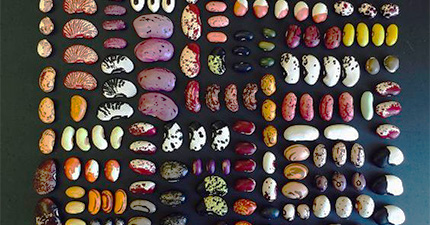A few weeks ago, I wrote some articles about essential dignities that used the word “decolonizing” in the title. The first article was about how the idea of rulership and detriment, which are always in signs that oppose each other, relate to citizenship within a Western state that appropriates and claims Rome. The second article attempted to read the essential dignities through Fanon’s reading of Hegel’s master/slave dialectic.
Since writing and posting the articles on essential dignities, I’ve been called in on the use of the word decolonizing. Since the call in happened on social media and I don't think a lot of people saw it, I’m writing this article as an accountability process and to be transparent about my learning process and next steps.
Asians were not seen as transient, but settled the Americas with white people. Asians occupy the same space as white people as tourists, exotifying and colonizing brown people. Forced migrations are a weapon of colonialism that whites AND Asians used against Black/NDN people.
— signs for conjuring medicine (@zodiacvoodoo) June 22, 2020
Basically, I should not have used the word decolonizing when referencing Fanon’s theory of the other as an Asian settler/foreigner on occupied land. The reason for this is because decolonization is not about race, as that particular Fanon theory was about. Decolonization is about indigenous sovereignty, which is something that multiculturalism and race has been often weaponized against.
It’s important to recognize that, when Fanon talks about decolonization, that he was doing so in the context of an occupied Algeria. When Fanon talks about race, he is doing so within this context and as a person working for the decolonization of a French satellite colony. The book I was referencing, Black Skin, White Masks, is also Fanon’s most race theory-y book. His other books are more about political struggle and about taking back land.
Because there are so many different colonialisms—colonialisms that are about trying out new methods of policing in satellite colonies before they can be deployed on the inland, colonialisms that are about genociding indigenous peoples, colonialisms that are about harvesting life matter in the form of body organs and surrogate births from external colonies to white capitals, colonialisms that are about incarcerating people who live within the colonial state—we have to be specific with our language. The word that I should have used in the essential dignities articles was not decolonization but postcolonialism.
Postcolonialism is about revealing the power dynamics within the institution of race. Race is a construct that began in the West and the ways in which race is discussed and distributed often obfuscate power dynamics. Postcolonial discourse doesn’t seek to transcend race but to display the power exchanges within race. Decolonization is not about race since indigeneity is not a race. Settler states are often portrayed to be multicultural, which works against indigenous survivance. For those of us in the diaspora such as myself, we should remember that decolonization is not our word and that decolonizing calls for us to step back and support indigenous rights to land. Postcolonialism is our word. Postcolonialism can support decolonization when it reveals white power as settlerism with the intention of supporting indigenous autonomy. Postcolonialism can, and often has, worked against decolonization when it discusses white power solely in terms of race and not in terms of settlerism, framing victimization only in terms of race and not settlerism. Postcolonialism can also work against decolonization when it seeks reparations for war atrocities committed in external colonies without seeking reparations for war atrocities committed by the settler state.
Anti-imperialism is a word that I initially didn’t like because it is a word that I grew up hearing only within nationalist and pro-military contexts. Now, I realize that anti-imperialism is a place where those who are oppressed by the globally dispersed militaries and those who are oppressed by the settler state can meet. To do this, we must recognize the domestic police force of a settler colonial state and the externally focused military as the same apparatus. When we are anti-imperial, we are opposing the military in all its forms, whether that is the police, the army, or the prisons.
I grew up hearing stories about war and trade atrocities committed against my kin outside of the West, as a lot of Asians do, a lot of it being, for me, propaganda repurposing the western system of race for nationalist purposes. It’s important to recognize that the same technologies (often the same airplanes!) that were trying to kill my kin are also used on indigenous nations and Black neighborhoods. I’m also learning that my presence in the West as an Asian immigrant can justify narratives around a multiculturalism that hurts indigenous sovereignty.
So, I’m not going to describe myself as an astrologer who is trying to decolonize astrology anymore. That’s not because I’m suddenly resistant to decolonization but because it’s not my place to use that word. Rather, as a raced person whose identity has been produced by the West, I’m going to use the words postcolonial and anti-imperialist with the intention of supporting decolonization. My astrological work will continue to be about cutting away at the universality of certain cosmologies and reappropriating western astrologies. As a person in general, I'm also going to increase my monthly reparations so that I'm paying towards both Black and indigenous survivance. And I'll be looking for other ways to be in accomplice with decolonization. I'm grateful for @zodiacvoodoo for calling me in and for the people who've been working on writing about and protesting for decolonization whose works helped with my learning.


